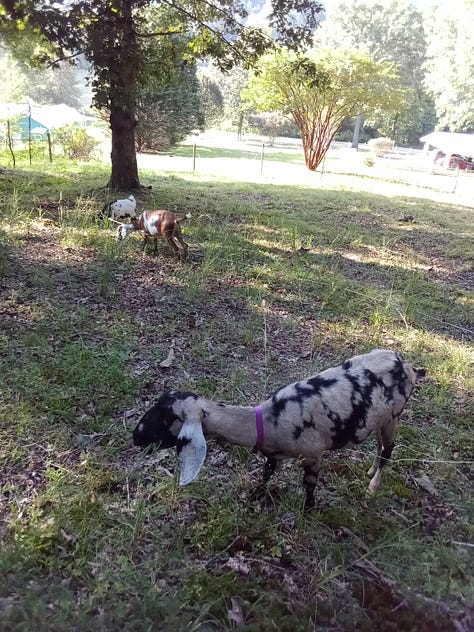



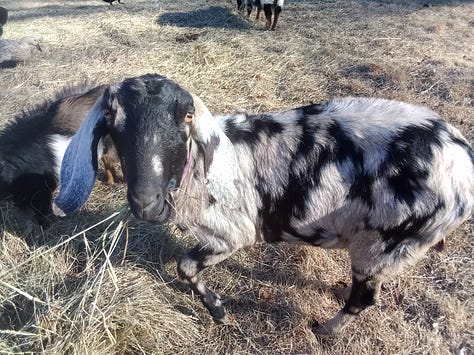
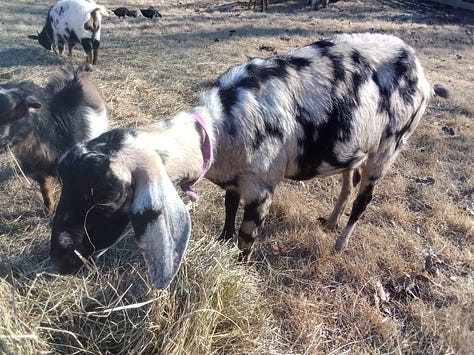
I live in the south, so I’m happy to say that aside from one rooster’s unfortunate comb in sub-freezing temperatures, I have had little experience with frostbite. But I’ve heard if someone tries to thaw a frozen extremity, one of the most encouraging signs of recovery is pain. Pain means that the nerve endings have not died, and there is hope — even though the immediate thawing experience is agonizing.
In short, pain is a sign of life.
Well, it took a sudden death on the homestead last week to remind me I am very much alive.
Not that we haven’t had other reminders. We’ve lost a couple chickens to hawks and a handful of baby bunnies to exposure. I’ve also dispatched animals for food or had to put animals down to end their suffering. But what happened last week was very different …
Perhaps I should start at the beginning.
(Ahem.) I consider myself to be a fairly down-to-earth, low-maintenance person. I shop at thrift stores, happily drive a dinged-up minivan, care nothing for jewelry, and hardly ever wear makeup. But I have one major weakness when it comes to discretionary investments —
I am a sucker for beautiful animals. And I am TERRIBLY picky about coloration.
It started with our ragdoll cat, Darcy. Although I could have gotten a perfectly nice free kitten from Craigslist, I spent hours in the car and over half a grand on a beautiful, fluffy furball who’s grown somewhat spherical in the last few years. He was the very last available kitten in the litter. I would have taken him without them, but deep down, I really wanted a kitten with mittens. And guess what? He’s got ‘em! What a sweet, specific gift from God.
So, does Darcy hunt mice? No. Does Darcy protect the house? No. Does Darcy come when called? Yes, but usually when there’s egg yolk or tuna involved. So what is his function? Mostly to look beautiful. And to let my daughter dress him up on occasion without scratching her. And to wrestle with the dog. And to let my husband carry him like a baby. That’s it. Do I regret spending so much on him? Not on your life.
This weakness for fancy animals then resulted in my colorful assortment of chickens (who in turn lay a colorful assortment of eggs when they feel like it) and a beautiful herd of goats. First we drove to Kentucky to get our colored angoras, Lord Peter Wimsey (Wim for short) and Harriet. Their goofy shaggy coats and floppy ears charmed me early on. (I justified their cost by saying we could sell their mohair; since I don’t knit, I had no personal use for it.)
Then came two young dairy goats: Abigail, my white and brown Nubian, and Gretchen, the multi-colored Nigerian Dwarf.
Four goats should have been plenty, right?
Except for goat math … and the fact I wanted a black Nubian for my growing collection. Specifically, a unique, moon-spotted Nubian who could still produce milk and add a WOW factor to my little herd. So as we often do in pursuit of beautiful animals, we drove a few hours to pick up Agatha.
But there was a problem.
When I ran my hand over Agatha’s back, I could feel the indentations between her bones. She had kidded earlier and was severely emaciated, most likely because she’d fallen victim to parasites.
But she was gorgeous! And she was nice! And we’d driven for hours with our daughter to pick her up!
So I took a chance and paid for her anyway figuring I could treat her for worms and bring her back to good health. Although we started milking early on, I quickly stopped when I realized she’d need all her energy to get well again. She had developed bottle jaw — indicative of severe anemia, and her eyelids were almost white — “Fatally Anemic” according to one color-coded Famacha test.
So began a new goat routine: feeding Agatha a high-protein goat kid feed to build up her muscles, treating her with three different dewormers to get her parasites under control, giving her super vitamin drenches to get her iron levels up, treating her for goat diarrhea, making her electrolyte solutions, and administering vitamin B-complex injections weekly to help bring her back. This was in addition to the other feed and hay and water and mineral access she got along with the other goats. And yes, I even asked people to pray for her.
And God answered yes!
It took about five months or so with celebratory milestones like the bottle jaw condition disappearing and her Famacha score going from “Fatally Anemic” to “Dangerously Anemic” to “Seriously Anemic” until her eyelids were pink. She even gained around 20 lbs! Then I knew she was healthy enough to breed, support a pregnancy, and produce kids (which I just knew would be just as gorgeous as she was) and nutritious milk for my family (including an infant niece).
By this time, Agatha had not only recovered enough to become useful on the homestead, but she had also become my favorite goat in the herd. Despite how many needles she’d endured at my hands, she would be the first to come up to me in the mornings and would happily stand by me so I could stroke her dappled fur and smooth head. I loved seeing her frolic down the hillside with the others, so happy to be alive. Sometimes I’d take her face in both my hands and tell her what a good girl she was and what plans I had for her future. She never argued. She trusted me.
So after she was well, I clocked Agatha’s cycle, waited three more weeks, and finally loaded her in my minivan to take her to a friend’s buck so she could continue her productive journey on our homestead.
But unfortunately, she didn’t make it to her special date.
About halfway up the mountain, I noticed Agatha had some labored breathing. She had been more vocal than usual in the car, and I was singing to her to help calm her down. But when I looked in my rear view mirror, I saw she was on her side with her legs out stiff. Goats aren’t supposed to lie like that. I pulled over the minivan, climbed into her transporting cage, and shouted her name to try to revive her. But her breathing had stopped altogether. I held her smooth black and brown head in my hands and adjusted her position, but the dullness in her large brown eyes told me she was gone.
So there, on a stranger’s gravel driveway at the top of Signal Mountain, I wept like a small child. I honestly have not cried that much since I was ten years old and found out our family dog had gotten run over by a car.

After a few minutes, I pulled it together enough to inform the buck owner we would not be arriving. A milk goat owner herself, she was very sympathetic and comforting. Then I called my husband and told him the sad news. The only thing I could figure was that the stress of leaving home (in her mind possibly for good?) had led to a heart attack.
I am so thankful to have a genuinely kind husband. Because at this point, he could easily have said, “Well, that was a waste of time and money!” But instead, he agreed to call our kids and prepare them for my earlier-than-planned return.
As I drove down the mountain with tears in my eyes, I lamented aloud to the Lord that Agatha was my favorite. She was my beautiful one. I didn’t understand why she was gone especially since her health had been restored. Perhaps it might sound silly to talk to God about such things, but He knows what it is to weep. He knows what it is to bleed. And since He’d created every atom of every cell in both Agatha’s body and mine, He’s big enough to care intimately about small (but intensely personal) losses — not just the expansive problems of the nations.
When I drove up my own gravel driveway, my children gave me hugs and said they were sorry for me. My youngest even made me a sympathy card and sat with me for a little while.
Later, I walked outside for some quiet and and some physical contact with my other furry things. I sat down and leaned against my mini-cow, and the other goats came up to me. I was especially surprised at our buckling, Rudy. Although normally skittish, he wouldn’t leave me and let me stroke his face for a while. When he started nibbling my shoe, I got up and went back into the house to make dinner or something.
When Jason got home from work, he helped me dig Agatha’s burial site (such a deep hole) in a corner outside our paddock and said a prayer over my sweet, beautiful goat. He thanked God that she had been healed and happy for the time she was with us; I was too upset to speak.
(I’m actually tearing up just typing this.)
So what do I make of pain and loss — even if it’s just the loss of an animal?
Well, lest I forget it, death is a reminder that I live in a broken world. But the fact we all seem to know that it is broken leads us to long for something whole.
Photo by Kelly Sikkema on Unsplash
If this life is all there is, and there’s no hope for ultimate justice or healing, then I’d say Agatha’s passing (or anyone’s for that matter) shouldn’t be that big of a deal. Death should be expected and not something to get worked up about. At best we can try to live as long as we can and avoid or numb the pain in life with whatever distractions are currently on offer. As Wesley from The Princess Bride remarked, “Life is pain, Highness. Anyone who says differently is selling something.”
But if there is a God who understands pain and promises to set all things right, to punish evil and reward faith and hope and love, then all of a sudden even the small things in life take on new significance. When I was nursing Agatha back to health, I was doing something good and giving a foretaste of when all creation will be renewed. Good work done in love is never wasted. God sees it and values it even if no one else does, even if all efforts this side of new creation ultimately end in death. As our youngest flippantly said to my husband after Agatha died, “One day, there will be no death.”
She’s right. And I am looking forward to that day.
But today, as I wrestle with loss, it’s right to be sad.
To pretend all things are happy at all times is to ignore reality and deny one’s own humanity. We are not robots. We have feelings as well as minds and souls; God created them all! Sadness is just evidence of love. If I hadn’t loved Agatha, I wouldn’t have been so sad at her loss. And in caring for her, I became more human — and maybe just a teensy more like God.
God cares not only for people but for all His creatures. If the last chapters of the book of Job are any indication, God provides for his creation and even bothers to give certain animals more pronounced personalities than others.
He’s even used man’s love and care of animals to bring people justice. In the Hebrew Bible (Old Testament), He manipulated the spots and stripes on goats during kidding season to provide for Jacob back when Laban was trying to cheat him out of his wages. And of all the ways Nathan the prophet could have confronted David about his murder and adultery, it took the story of a wealthy man eating his poor neighbor’s pet sheep to break the heart of the shepherd king.

C.S. Lewis once said if we wish to keep our hearts from getting broken, we should lock them away and not love anyone — not even an animal. But locked away, hearts turn to stone. Even though a stony heart is less susceptible to pain and loss, it’s also lifeless.
Personally, I’d rather be alive even if life is painful and sad sometimes. Like my middle son’s favorite musician, Tyler Joseph of 21 Pilots, sings, “Sometimes you gotta bleed to know that you’re alive and have a soul.”
My heart is bleeding a little right now. But I know I’m alive and can trust God with my soul — and my feelings.
Happy Valentine’s Day.




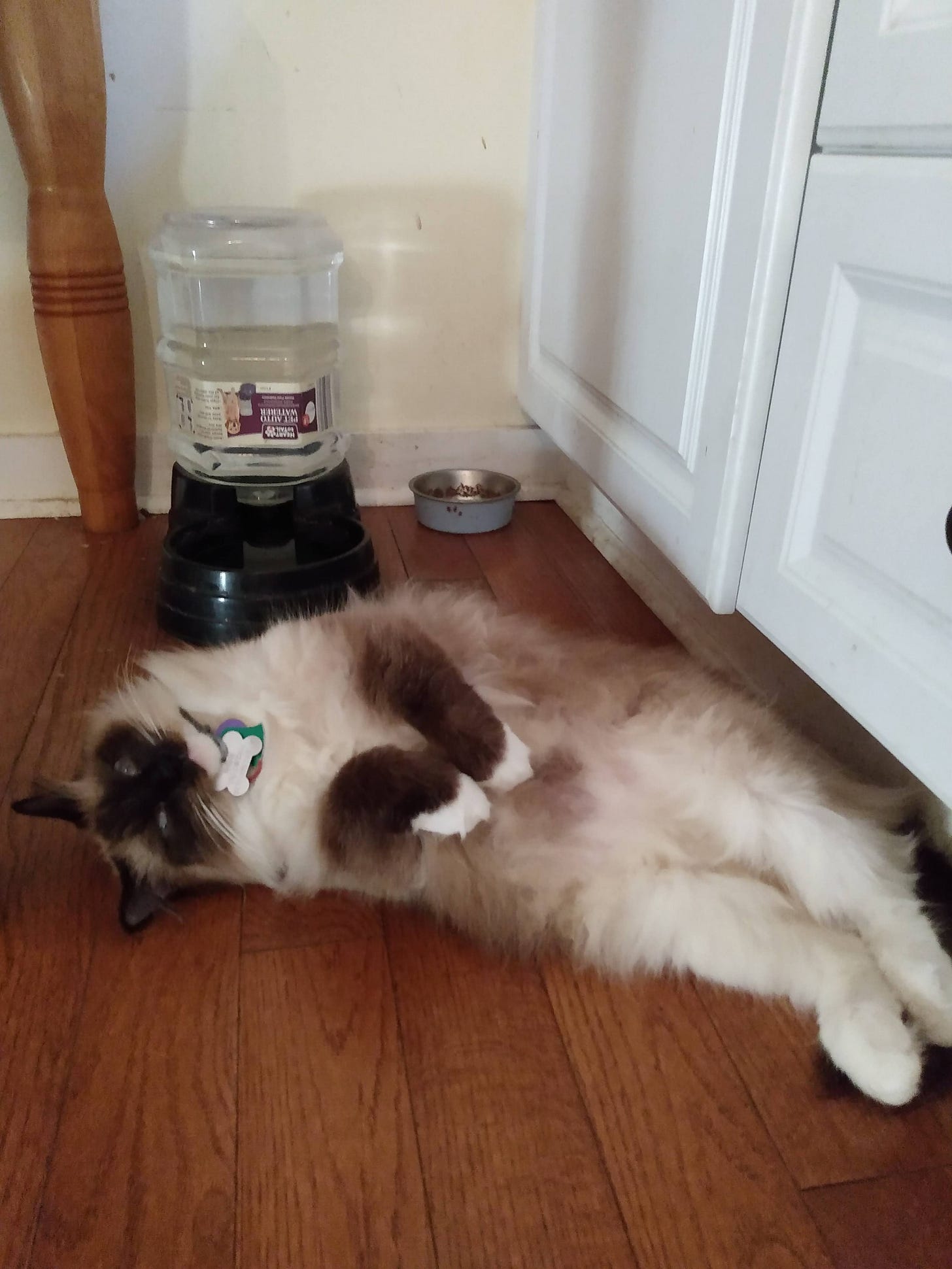

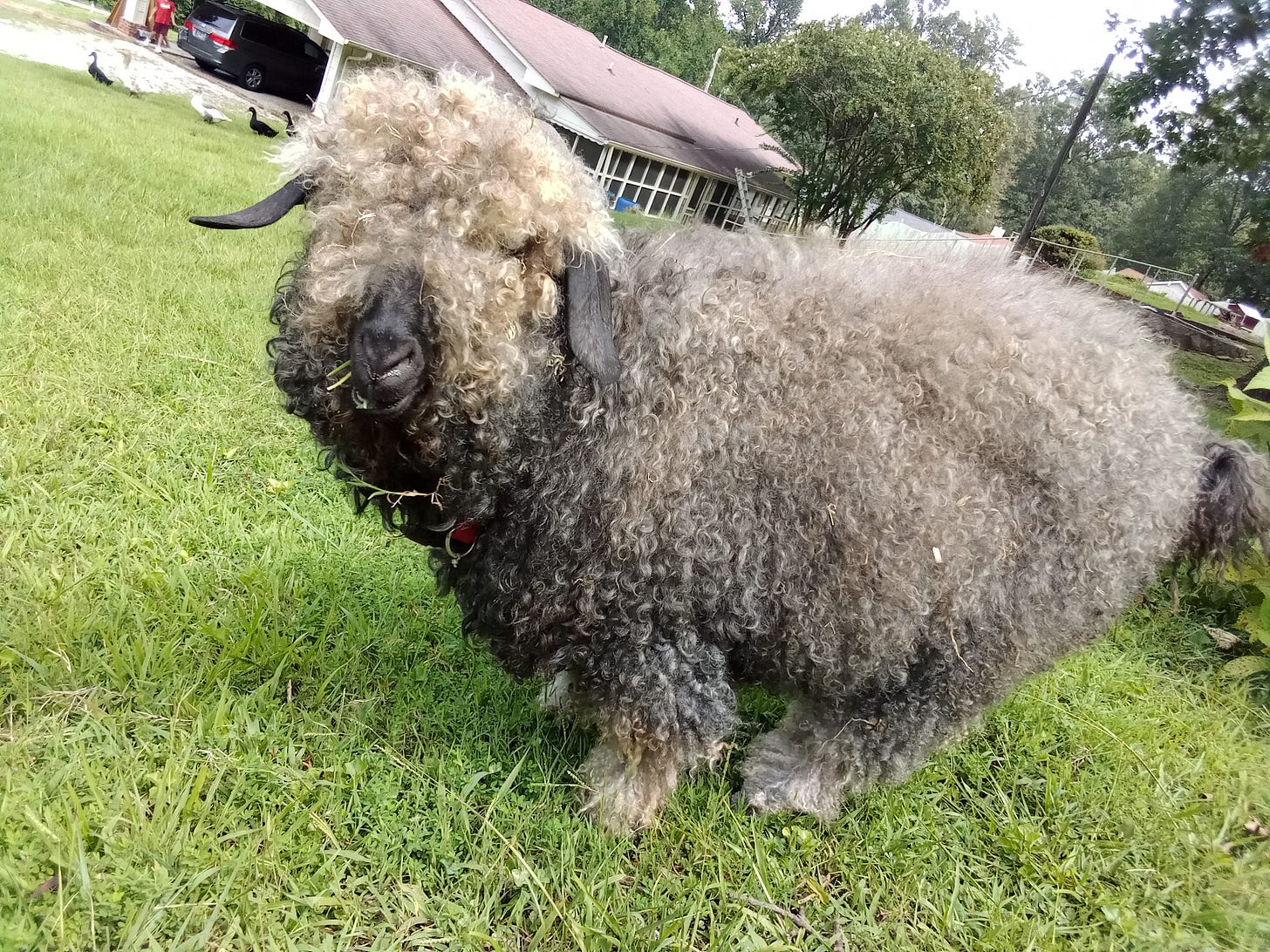

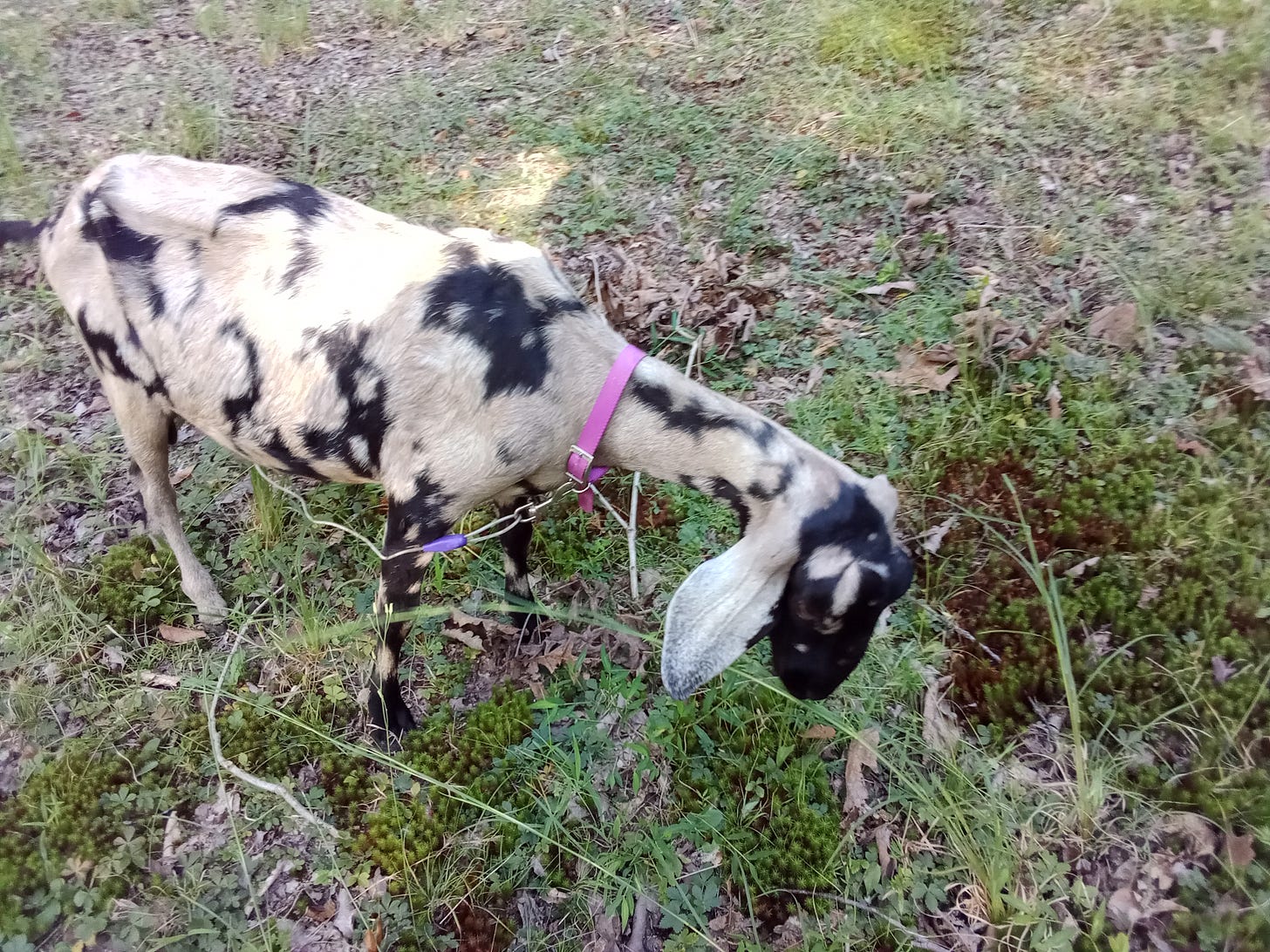

Pain is a sign of life and for me , a reminder to be grateful.
I'm sorry about Agatha. "Despite how many needles she’d endured at my hands, she would be the first to come up to me in the mornings and would happily stand by me so I could stroke her dappled fur and smooth head." Love can be hard, but it's worth it.